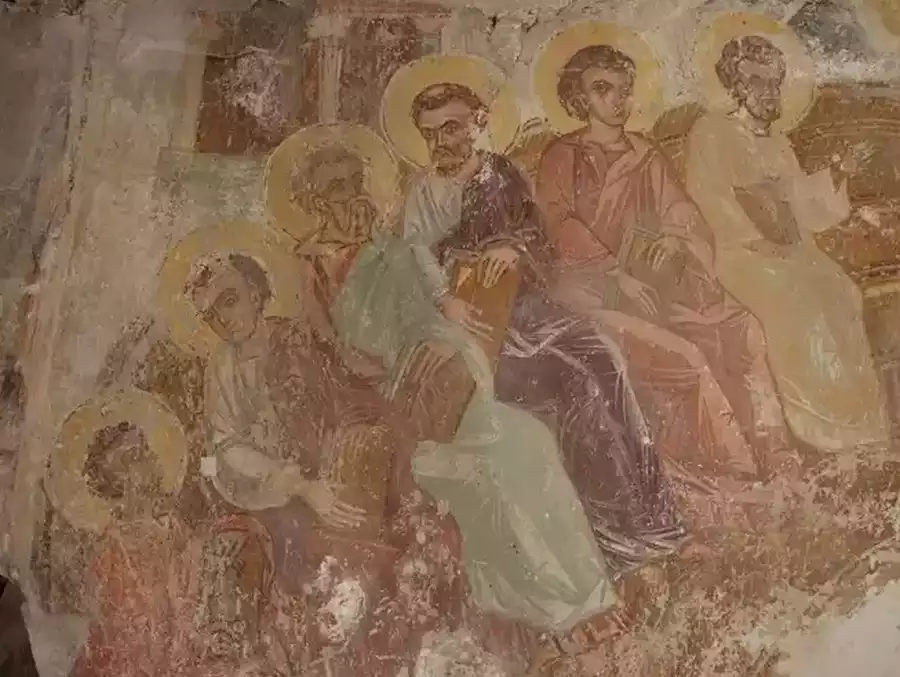
The Acts of the Apostles, often simply referred to as Acts, stands as a pivotal New Testament book chronicling the early Christian church’s development. Authored traditionally by Luke the Evangelist, it is a sequel to the Gospel of Luke, forming a cohesive narrative known as ‘Luke-Acts’. This work, written in Koine Greek, primarily depicts the actions and teachings of the Apostles, particularly Peter and Paul, in the aftermath of Christ’s resurrection and ascension.
Etymologically, the term ‘Apostle’ derives from the Greek ‘apostolos’, meaning ‘one who is sent away’. This refers to the disciples sent out by Jesus to spread his teachings. The book’s title reflects its content: a recounting of the deeds and missions of these early Christian emissaries.
Historically, Acts is set in the 1st century AD, covering approximately three decades post-Christ’s crucifixion. It provides a valuable account of the early Christian community’s growth, challenges, and the spread of Christianity from Jerusalem to Rome. This period marks a significant phase in religious history, witnessing the transition from a predominantly Jewish Christian sect to a movement encompassing the Gentile world.
The Foundation of the Church
The opening chapter of Acts sets the stage for the Apostolic Age. Here, the narrative recounts Jesus’ final instructions to his disciples, emphasizing the Great Commission – the charge to spread his teachings to all nations. This chapter also details the ascension of Jesus into heaven, a pivotal event affirming his divine authority and the fulfillment of prophecy.
Following the ascension, the apostles return to Jerusalem, where they engage in prayer and select Matthias to replace Judas Iscariot, thus restoring the group to twelve. This act signifies the continuity and integrity of the apostolic mission, essential for the legitimacy of their future work.
This initial chapter serves as a crucial foundation for the rest of the book, highlighting themes of divine guidance, the fulfillment of Jesus’ promises, and the Apostles’ unwavering commitment to their divine calling. It sets the tone for the subsequent narrative, characterized by miraculous events, zealous preaching, and the establishment of the early church amidst external challenges.
The Advent of the Holy Spirit and the Early Church
Chapter 2 of the Acts of the Apostles is pivotal, marking the descent of the Holy Spirit on the disciples during the festival of Pentecost. This event, often regarded as the birth of the Christian Church, sees the Apostles imbued with the Holy Spirit, enabling them to speak in various languages. This miracle facilitates the spread of the Gospel across diverse linguistic and cultural groups, emphasizing the universal nature of the Christian message.
Peter’s sermon, a central element of this chapter, outlines the core Christian doctrines, including the death and resurrection of Jesus Christ and the call for repentance and baptism. His powerful oration results in the conversion and baptism of about three thousand individuals, symbolizing the rapid expansion of the early Christian community.
Furthermore, this chapter illustrates the communal lifestyle of the early believers, characterized by shared resources, regular prayer, and communal meals. This depiction not only provides a model for Christian fellowship but also reinforces the transformative power of faith in creating a unified, supportive community.
The initial chapters of the Acts of the Apostles provide a foundational understanding of the early Christian Church’s formation and expansion. They highlight key events such as the Ascension, the Pentecost, and the profound impact of the Apostles’ teachings. These narratives underscore themes of divine intervention, community, and the universal appeal of the Christian message, pivotal in shaping the trajectory of Christianity.
Acts continues to be a vital source for understanding early Christian history, theology, and practice. Its accounts of faith, courage, and the challenges faced by the first Christians resonate deeply with believers and historians alike, offering insights into the development of one of the world’s major religions.
References
- Barrett, C.K. “The Acts of the Apostles: A Shorter Commentary.” Continuum, 2002.
- Bruce, F.F. “The Book of the Acts.” Eerdmans Publishing Co, 1988.
- Dunn, James D.G. “Beginning from Jerusalem.” Eerdmans Publishing Co, 2009.
- Stott, John. “The Message of Acts.” InterVarsity Press, 1990.
